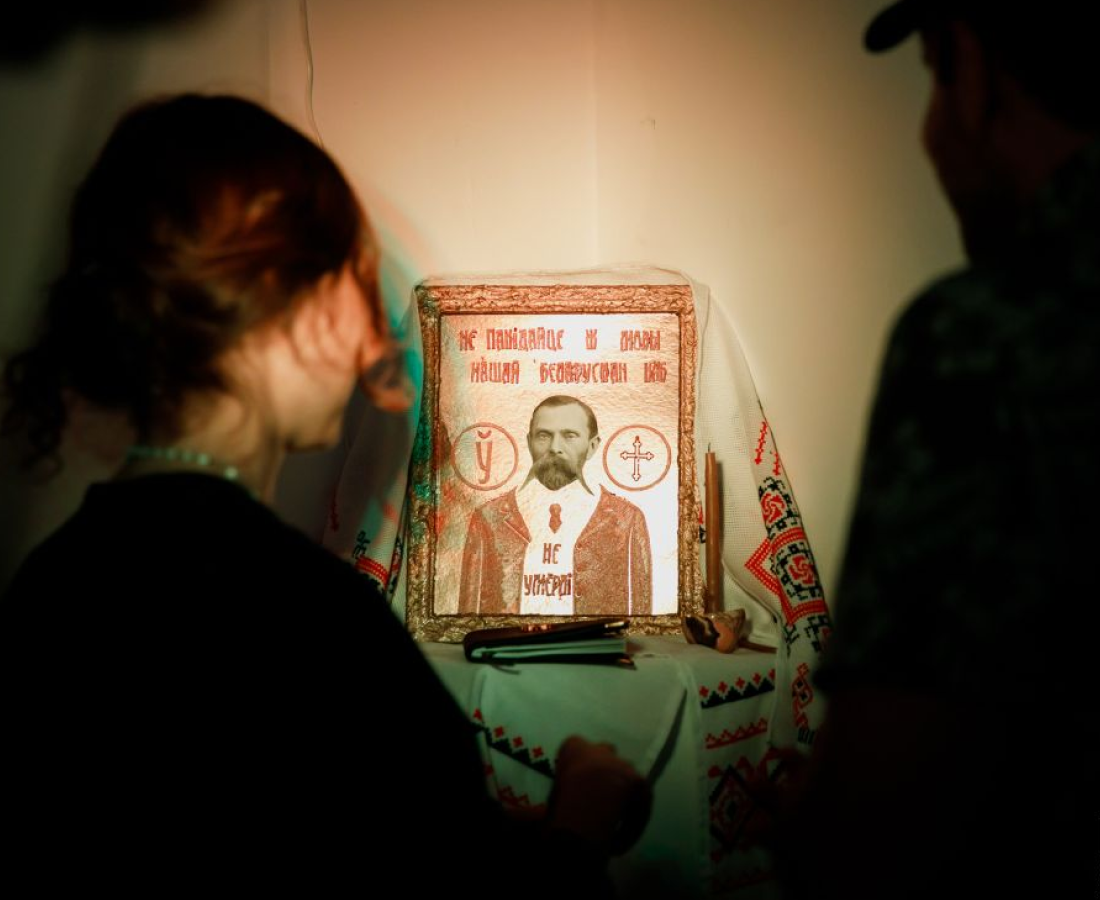
The Maldzis initiative celebrated its first anniversary on September 7 with a festival at the Museum of Free Belarus in Warsaw — featuring an exhibition, discussions, games, lectures, and a concert at the end. “Very lively!” — that’s how one of the visitors described the event. Belsat also immersed itself in the festival atmosphere.
“A year ago we didn’t even know which direction we would take or where we would end up. But we understood that the theme of cultural and historical heritage is very important for Belarusians, as is the idea of Belarusians’ European identity. From the beginning, we immediately felt a response in society, so we followed this path. That’s why over the year our collection of artifacts has grown — I see this as our success. Another achievement has been our media projects, namely ‘Heta Top!’ with Sasha Ivulin and the TikTok channel ‘Svet Maldzisa.’ Could we have imagined that in a year we would be organizing a festival and a summer school? Probably not,” reflected Maldzis co-founder, sociologist Ryhor Astapenia, in an interview with Belsat.
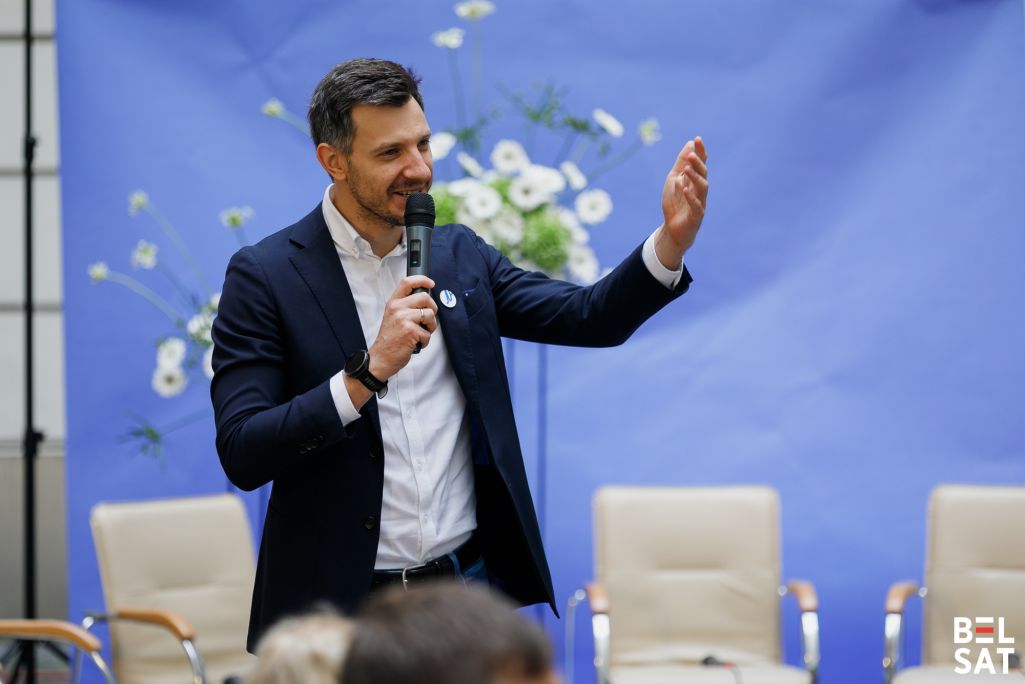
Today, the Maldzis exhibition features five artifacts: the Third Statute of the Grand Duchy of Lithuania, the Radziwiłł Map of the GDL, the map of the GDL by Jan Nieprzecki, the first edition of “The Staff of Governance” (1667) by Simeon of Polotsk, and “The Great Art of Artillery” (1651) by Kazimierz Siemienowicz, published in French.
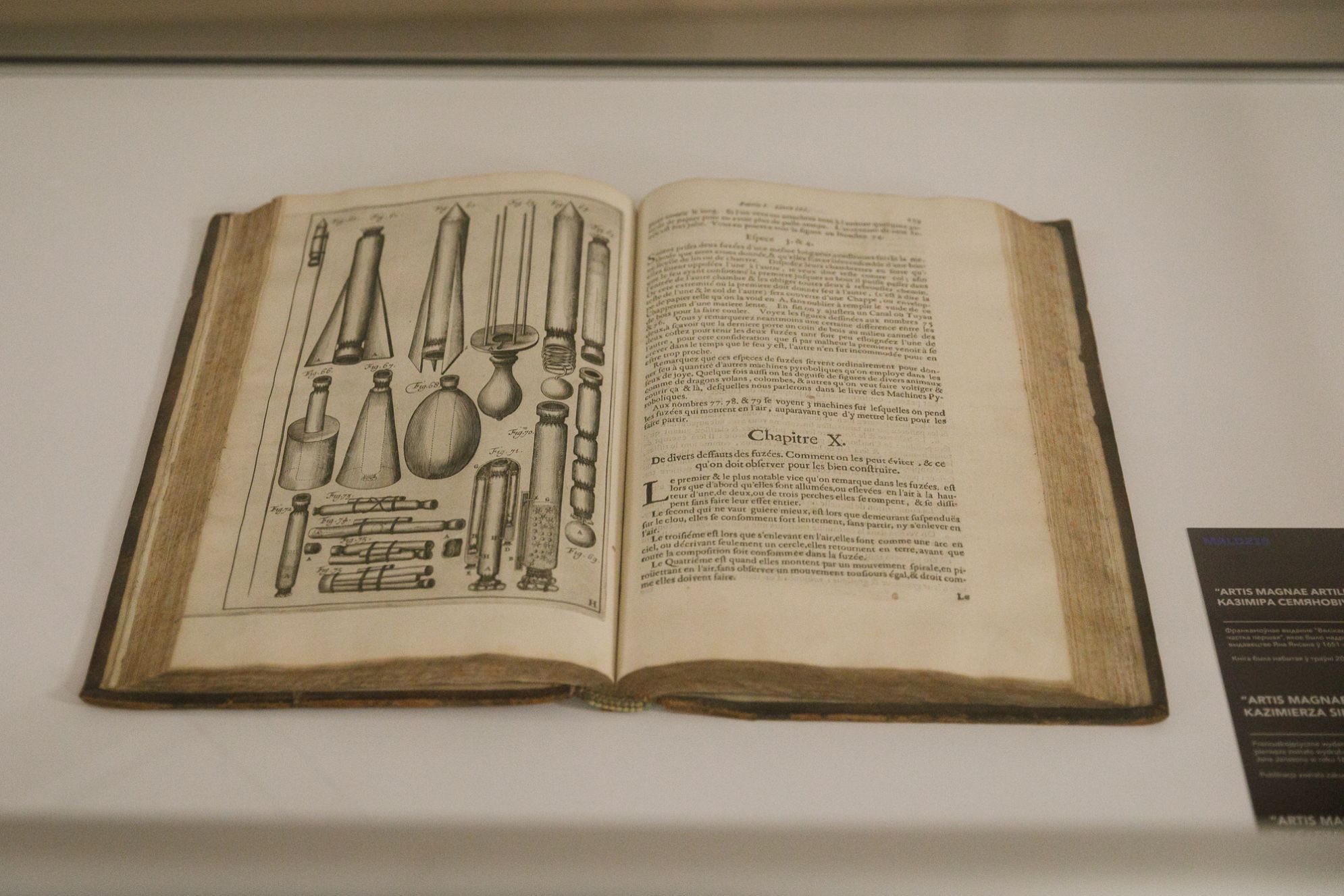
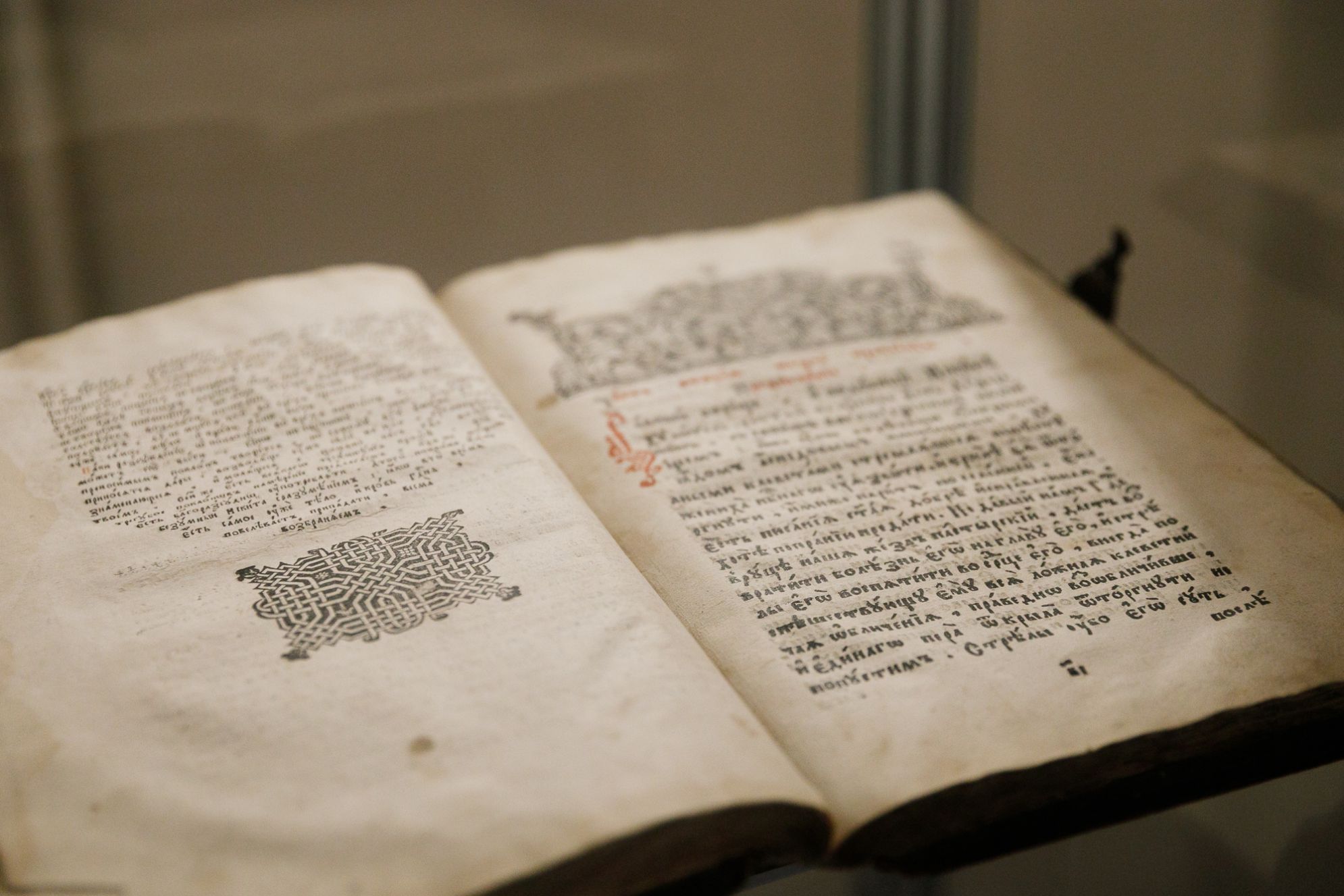
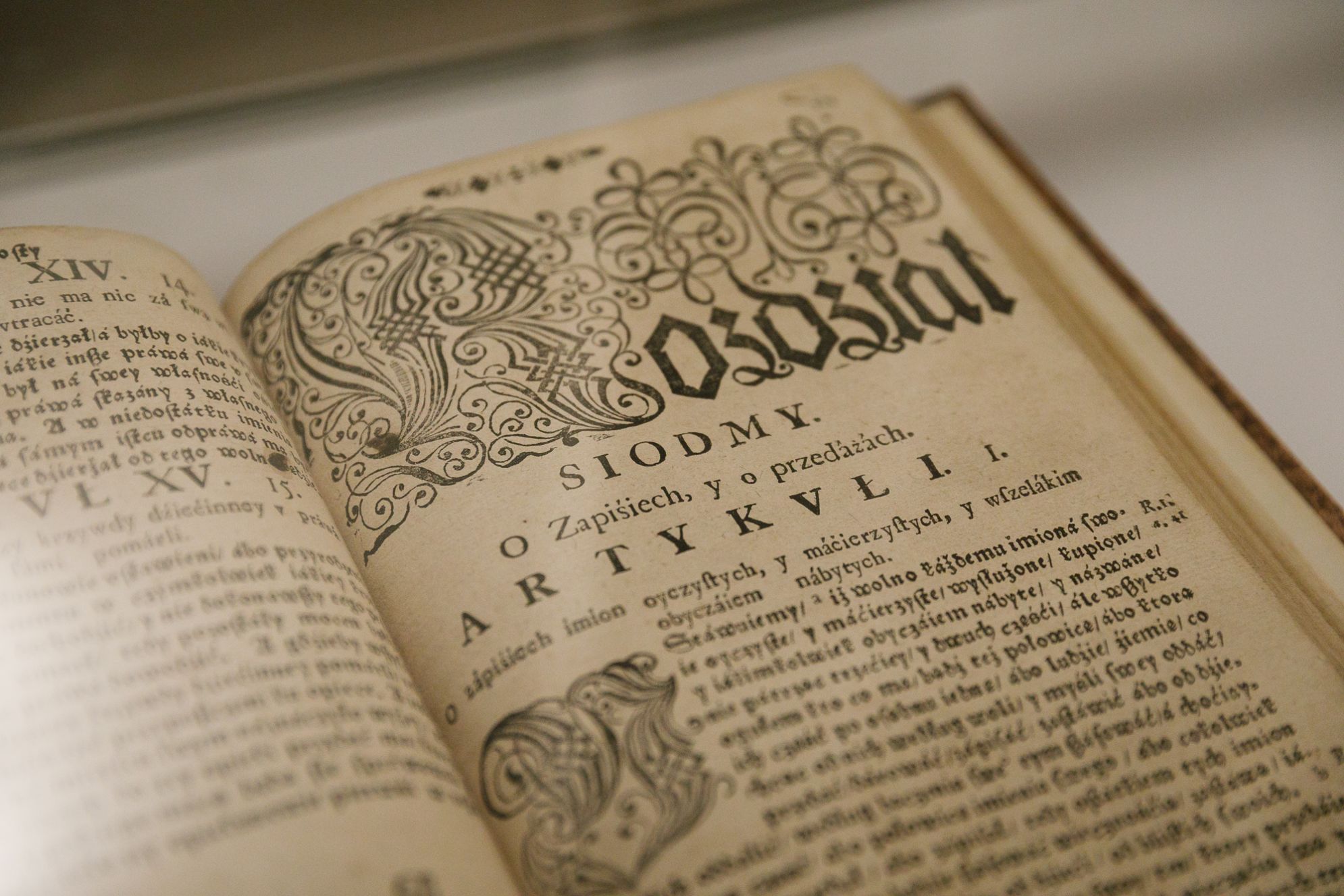
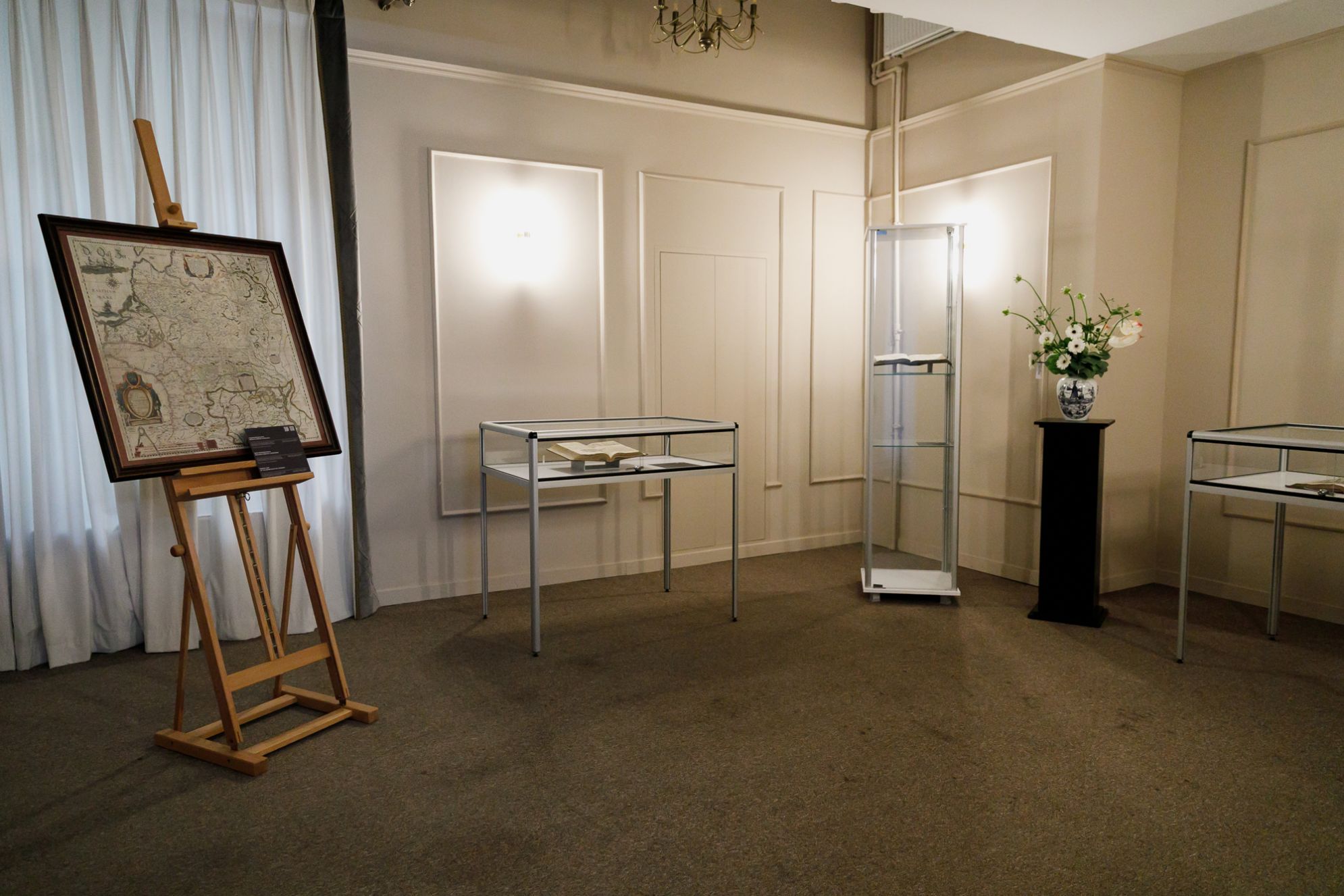
During the festival, these priceless books and maps were displayed in one of the rooms of the Museum of Free Belarus. Acting as guide was former diplomat and co-founder of the Maldzis initiative, Pavel Matsukevich.
“Why should we deal with historical heritage? I have several answers. First, in my view, it is a matter of honor, dignity, even survival as a nation — a question of defining our future. Second, we must work on reclaiming heritage because it has been lost. Belarus can be considered the world champion in terms of the scale of lost national cultural treasures,” Matsukevich explained during his speech at the festival.
He referred to the opinion of Belarus’s first Foreign Minister, Piotr Krauchanka, who in the early 1990s estimated that Belarus had lost up to 99% of its national cultural heritage. According to Matsukevich, Krauchanka based this assessment on UNESCO data. Over 30 years of independence, some treasures have been recovered — but far too few.
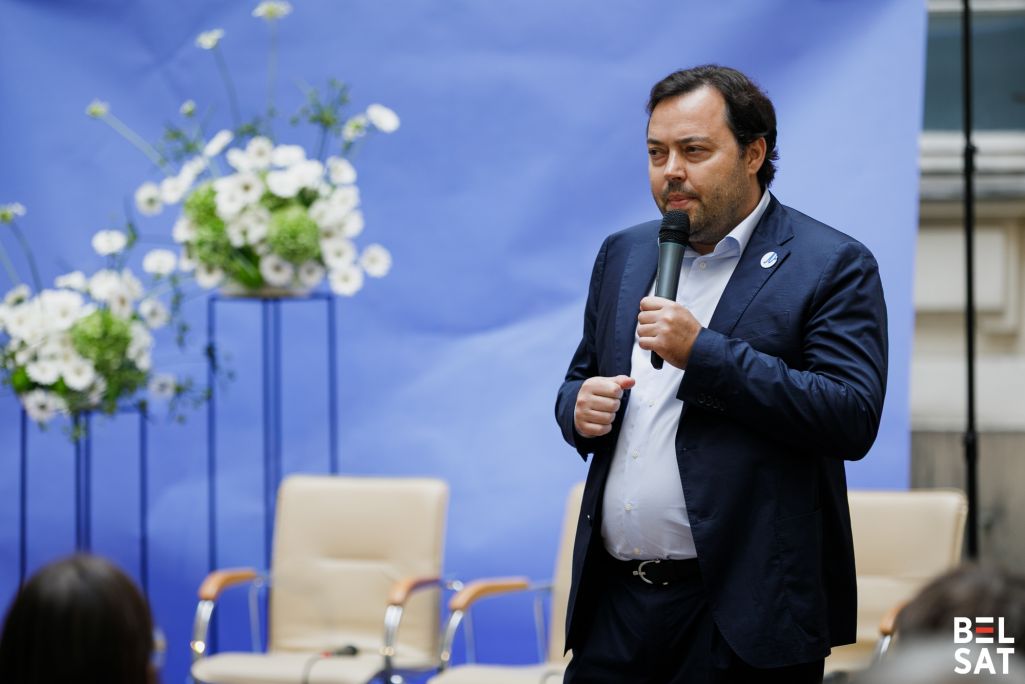
“Here another problem arises: our society has not yet comprehended the scale of these losses, it has not been realized by us. This is a great challenge for us and for the entire Belarusian society,” concluded Pavel Matsukevich.
Society is changing. The turning point, according to analyst and BEROC administrative director Pavel Daneyka, was the year 2020. He took part in a discussion on Belarusian identity (“Why didn’t Belarusianness capture the masses, and how can this be changed?”).
“I think 2020 was an important turning point in the self-reflection of the Belarusian nation. A sense of pride in ourselves appeared. And this is very important… Now, if we manage to build diasporas like the Irish or the Jews once did, we will become a nation we can be proud of, a nation that will shape the future of Belarus. But if we dissolve again into others — it will be sad. Yet I believe in us, I believe in the fire that has ignited in Belarusian souls — it will lead us forward!” Daneyka shared with optimism.
The first discussion, moderated by Lesia Rudnik, director of the Center for New Ideas, also featured Siarhei Budkin (head of the Belarusian Council of Culture), journalist and Nasha Niva director Nasta Rouda, and Maldzis co-founder Ryhor Astapenia.
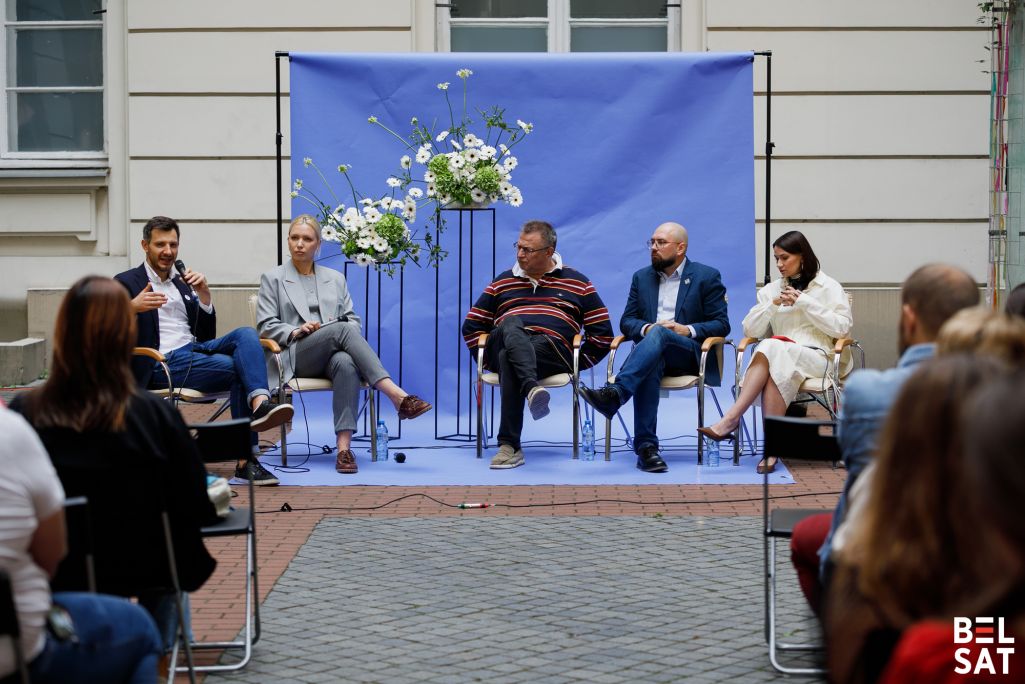
Nasta Rouda raised the problem of the “entry point into Belarusianness”: very often such a point cannot be found in the family, kindergarten, or school. The potential, she noted, lies in individuals — citing the example of Slava Komisarenko, whose stand-up shows are also available in Belarusian.
“Belarusianness must be sexy! Nobody wants to be a poor, miserable, downtrodden Belarusian — that’s not attractive. Everyone wants to be cool and confident. And we, as agents of influence in the Russian-speaking environment, must be exactly like that,” Rouda said.
This principle — “be sexy!” — also seemed to guide the graduates of the Maldzis summer school, who presented their projects at the festival. Visitors could take part in a quiz “Belarus on Old Postcards” or in a game-based lecture about prominent Belarusian women, dive into the history of Belarusian comics, or step into a corner with an unusual icon depicting Francisak Bahusevich as a saint, with a Christian cross next to the Belarusian letter “ŭ.” There were also conversations in the “Ssaboyka” space (“Not take-away, but share with others”) and experiments in the “Workshop of Verse Forms.”
After the break, discussions resumed. In the inner courtyard, which served as a debate hall that day, historian Timokh Akudovich spoke on “Can the ‘Book Magistrate’ Change Belarusian Publishing?”, Pavel Matsukevich reflected on “Why Work on Returning Heritage?”, and writer and music critic Aliaksandr Charnukha provoked the audience with “What Makes Music Belarusian?”
“As I see it, ‘Belarusian music’ is a convention. Everything you want to consider Belarusian music — is Belarusian music,” Charnukha said, backing his point with examples and stories. Belarusian music, in his view, includes not only legends but also “our thieves and our bastards.”
“It doesn’t matter what language they sing in — they are part of our context. They are our guys, whether we like their music and their actions or not. If we start writing them out of our context and our music, then visitors in museums will once again see plaques reading ‘Marc Chagall — Russian artist’ or something like that,” he argued.
Charnukha added that even Maks Korzh is part of “our context,” and it is impossible to erase him, no matter what we think of him.
Finally, the Maldzis festival program closed with a concert by the band Nochy, whose Belarusianness is beyond dispute. The audience danced and sang along to their music.
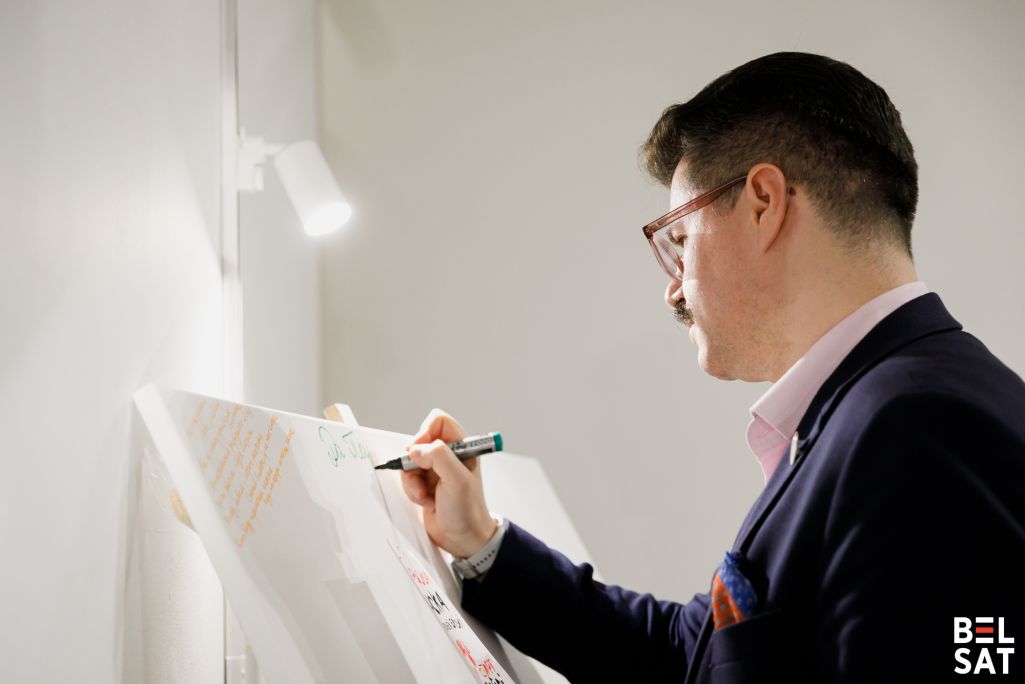
Even before the concert, the audience witnessed a heartfelt conversation between Aliaksandr Ivulin and writer Sviatlana Kurs (Eva Vežnaviec) — a discussion about Belarusian identity, love, and death. While it is impossible to fully convey the emotions that filled the room, here are some of Sviatlana Kurs’s reflections:
“Belarusian national identity breathes where it wishes. What is happening in the village now somewhat resembles serfdom. Many people have nowhere to escape except into alcohol. So relying solely on the Belarusian village in this sense is not enough. Once again: the Belarusian spirit truly breathes where it wishes. And that is why it is indestructible. I stopped worrying about Belarus long ago. ‘Cease your endless weeping for the homeland,’ — she quoted Maksim Bahdanovich.
“A Belarusian always seeks the golden mean. He is an individualist, but also a communal man, a person of talaka (collective work). There is no emptiness in him — only fullness, depth, hidden meaning. Belarusians are so close to me that it is sometimes hard to put my thoughts into words. But in Belarusians I deeply love their resilience, lyricism, and gentleness. Their modesty. A good kind of modesty — not the kind where you shrink into a corner, but the kind where the greater the depth, the quieter the person. And Belarusians remind me of a deep well. There is much silence in Belarus…” the writer reflected.
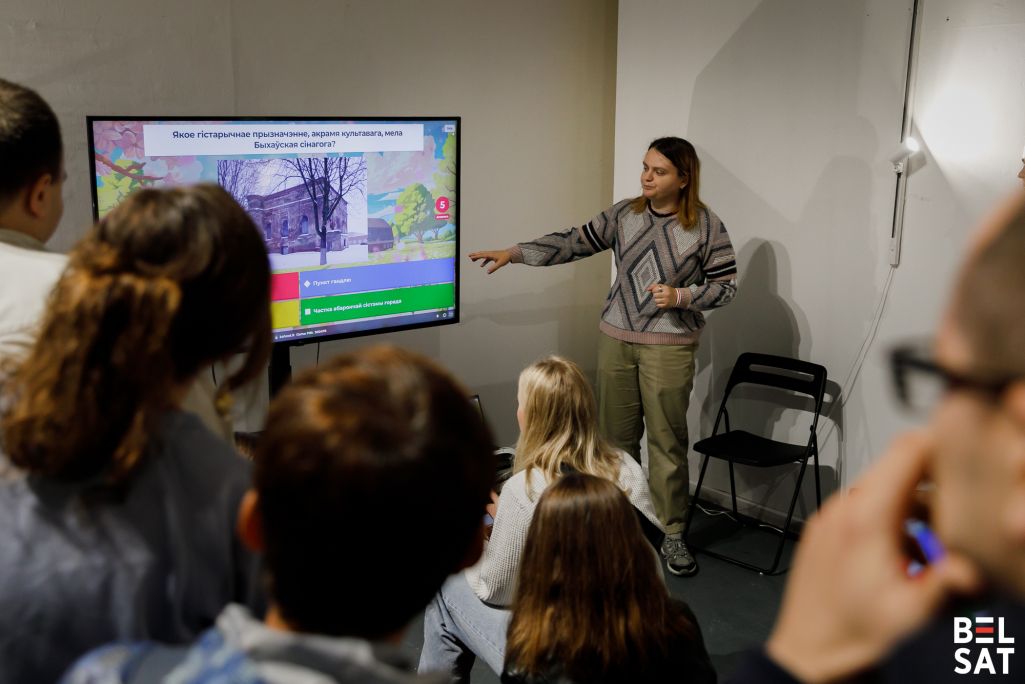
"I no longer feel fear, because I am standing almost at the threshold of death. I have only a few percent chance to survive — maybe two, maybe three. And there is no fear, because I believe I have atoned for my sins. But I don’t want to be overconfident, and of course, I am afraid to stand before the face of the Lord. I am sure that before His presence, we will all be terrified, bow down, and deeply regret what we have done…” — shared the speaker.
“Today, I wish for you to live this day happily and to enjoy your evening. The main thing is that no one can take away our life — our everyday, happy life. Whatever fate awaits us — let’s live. Let’s step into life!” — concluded Sviatlana Kurs.
Maldzis is a volunteer initiative that sees its mission in uniting Belarusians around cultural heritage and strengthening the image of Belarus as a European country. The initiative is named in honor of cultural figure and scholar Adam Maldzis, who sought out and restored forgotten values and names of Belarus. Maldzis continues this work.
Original article: belsat.eu